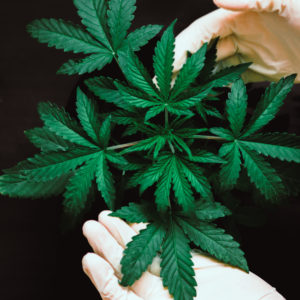Bill Would Legalize Recreational Pot in PA

Will this be the year that Pennsylvania legalizes recreational marijuana?
Two state senators, a Democrat and a Republican, announced they are introducing legislation to legalize it in the Keystone State.
“We have a unique and singular opportunity to correct decades of mass incarceration, disproportionate enforcement against marginalized communities, the criminalization of personal choice, and the perpetuation of violence, which all materialized from the failed war on drugs,” said Sen. Sharif Street (D- Philadelphia). “Legalizing the adult use of cannabis will help us fully and equitably fund education, lower property taxes, and address various community needs throughout Pennsylvania.”
The legislation would grant licenses to sell marijuana to social and economic equity applicants while providing room for new and existing licensees to ensure demand in Pennsylvania was met. Also, it expunges non-violent marijuana convictions for medical marijuana patients and goes further to expunge all non-violent marijuana convictions.
Sen. Dan Laughlin (R-Erie) said, “Legalized adult use of marijuana is supported by an overwhelming majority of Pennsylvanians, and this legislation accomplishes that while also ensuring safety and social equity. With neighboring states New Jersey and New York implementing adult use, we have a duty to Pennsylvania taxpayers to legalize adult-use marijuana to avoid losing hundreds of millions of dollars of new tax revenue and thousands of new jobs.”
The bill sets the minimum marijuana consumption age at 21 years old and provides appropriate deterrence to keep marijuana out of the hands of anyone under 21. Additionally, law enforcement would be given the means to adjudicate driving under the influence and the authority to pursue and eradicate any illicit market. The legislation also bans any marketing directed toward children and sets workplace requirements regarding marijuana use for those operating in good faith.
During state budget hearings held in 2021, the Senate Appropriations Committee was told by the Pennsylvania Independent Fiscal Office that legalized adult-use marijuana could generate $400 million to $1 billion in new tax revenue for the commonwealth, the senators said in a press release.
Daylin Leach, a former state senator for Montgomery and Delaware counties, said, “I actually introduced the first bill to legalize recreational marijuana in 2018 (SB 350). Getting rid of the pernicious arcane policy of prohibition is long overdue. But it’s important to get it right. I hope they’ve taken the time to fully understand the issue.”
“I’d rather they buy it legally. If they’re going to get it, they’re going to get it,” said Ed “Eddie Z” Zampitella, who owns a sober living club, The Last Stop, in the Kensington section of Philadelphia.
If people buy illegal marijuana, it can be laced with fentanyl, which may be fatal, he noted. And also, they may go into bad neighborhoods to purchase the drug, where “they can get robbed or killed,” Zampitella said.
But Bucks County District Attorney Matt Weintraub has a different perspective.
“This seems like pure rationalization for the government to make more money from a taxable vice. DUIs, and therefore DUI-related crashes, injuries, and deaths, will increase due to this legislation,” Weintraub said.
Street and Laughlin also touted the benefits to the state’s farmers. The legislation may also strengthen Pennsylvania’s robust agricultural industry by empowering farmers and craft growers across the state to grow marijuana in a manner that is safe and regulated, they said in a press release. Additionally, it would allow Pennsylvania’s medical marijuana patients to grow a limited number of cannabis plants at their homes for personal use to help ease the cost and accessibility burdens that still exist for medical marijuana.
The legalization effort comes as more studies raise questions about the impact of the widespread use of marijuana on mental health and brain development.
A study published in the medical journal Lancet last year found that high-potency cannabis is associated with a greater risk of psychosis and addiction. And a newly-released National Institutes of Health study showed young men with cannabis (marijuana) use disorder have an increased risk of developing schizophrenia.
“Previous studies indicate that rates of daily or near-daily cannabis use, cannabis use disorder, and new schizophrenia diagnoses are higher among men than women, and that early, frequent cannabis use is associated with an increased risk of developing schizophrenia,” the NIH reported.



